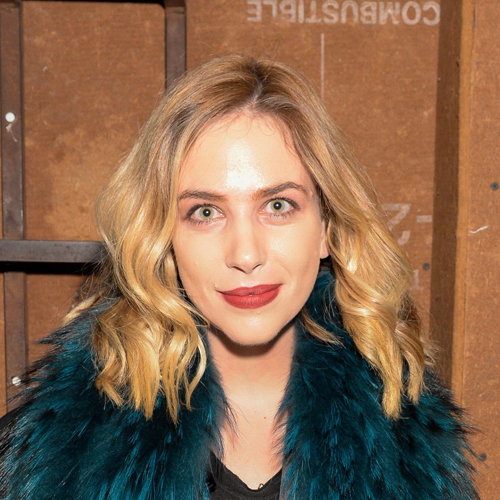If ever there were an industrial complex ripe for satire, it would be that of reality television, and Lifetime’s UnReal, the third season of which premieres tonight, has taken up the task with aplomb. The show centers on Rachel (Shiri Appleby), a charismatic producer struggling with trauma and mental illness while working on a Bachelor-like dating show called Everlasting; her driven, ball-busting boss Quinn (Constance Zimmer); her occasionally unhinged ex-boyfriend and fellow Everlasting crew member Jeremy (Josh Kelly); and series creator Chet (Craig Bierko), a brash, misogynistic man who may or may not have finally called it quits on his on-again off-again romance with Quinn.
In the wake of a hyperbolic, scattered and mostly panned season two, the show is switching gears in an effort to focus less on packing each episode with as much drama as possible, and more on plumbing the depths of these four troubled souls. For the first time in the history of Everlasting, there’s a female lead—a wealthy, beautiful, pragmatic startup investor named Serena who, tired of being the only single lady in her fancy friend group, decides to “maximize [her] deal flow” by attempting to find love on camera. Serena is savvier than any of the ladies previously featured as contestants on the show, but not above feelings of insecurity; in this way, her character serves as both a foil to and a mirror for Rachel and Quinn.
Feminism, and the ways in which modern women negotiate it, has always been an underlying theme on UnReal. But in season three, it's become the primary one. Interestingly enough, showrunner Stacy Rukeyser says they constructed the contours of the plot in advance of both the 2016 election, and the feminist uprising that would follow.
I caught up with Rukeyser, who was promoted from executive producer in 2016 and has been with the show since its inception, to get her take on Everlasting's new female suitress, the #MeToo movement and when Rachel’s going to give up on that whole celibacy thing...
I watched the first two episodes of the season, and my primary question was: why does Rachel go back to Everlasting when it seems like she’s in such a good place without it?
Well, two things: First of all, one of the themes that we talk about on the show a lot is being a workaholic, and there is this lure and draw in that. When you combine that with how personally upset Quinn seems...At the end of the last season, she found out she couldn’t have kids, she preemptively broke up with her boyfriend so she wouldn’t be a disappointment to him, and that’s all fine, because she had her career and that was sort of self-defining for her...Now, when we pick up in the third season, [Everlashing] has been shut down for six months, Quinn’s reputation has taken a real hit in the industry, and I think Rachel sees that she needs this. I think she wants to come back to help Quinn.
I think it’s also easier to go back to work and do the job that you know how to do and that makes you feel powerful than it is to really take the time to be by yourself in the woods and do the work on yourself that you need to do. That’s really scary.
How much will we see Rachel stray from the whole self-improvement/celibacy/honesty thing?
As anyone who watches the show knows, it’s very hard to do the job that she’s supposed to do, and also be 100% honest all the time. So she’s going to be confronted with a big choice about whether to stick to it.
I feel like some of the struggles with being a strong or “intimidating” woman that have always been at play on the show for Rachel and Quinn feel are really being brought to the fore this season, especially with Serena. Was that a conscious decision?
It was 1000 percent a conscious decision. We knew we wanted to do a female suitress, a feminist suitress. It was something that felt very personal to me and Sarah Shapiro, the creator of the show. I was 37 when I met my husband. Things were going well at work, but I was starting to think it probably wasn’t going to happen for me—I’m not gonna get married, I’m not gonna have kids, but you know, at least I have a career. I knew how painful that was and how frustrating and confusing it is for many women who find that, the higher up the ladder they [climb], the harder it is to find a man.
The other interesting thing about Serena is that she places Quinn and Rachel in this quandary of having to figure out how to manipulate someone who is just as intelligent and strong as they are.
Yeah, totally. I mean she’s not the traditional demure kindergarten teacher where you just tell her she looks cute and where to stand and she’s just happy to be there. She really does have her own agenda and she is there, honestly, to find a husband. It’s come to [a place] for her where she’s like, well, I tried everything else...why not? Which means she’s setting off to do this in a really particular way.
But what’s interesting is that even though it seems like a great idea for her—she talks in these terms where 'it’s a great way to maximize my deal flow,' and have 20 blind dates and then if it isn’t one of those guys, all of America will know who she is—what she isn’t anticipating is what a sausage factory these places can be, and how they can manipulate you and play with your psyche, not to mention edit you any way they want. That’s why you’re seeing in the second episode that, as confident as she is, she is convinced by Chet that she should change who she is. I think this is how women feel a lot of the time. It’s like, do I follow Cosmo and learn how to give a good blowjob? Or should I be leaning in and fighting for women’s rights? It’s really confusing.
This must be an interesting show to work on because it’s about TV production, which is what your job is. How much do the experiences of Quinn and Rachel mirror ones that you or women you know have had in their careers?
A lot. Like I mentioned, even the thing about being single and not having kids, and figuring out how to feel about that...The other thing about this season is that it’s really about men taking credit for women’s work. The fact that, when Rachel and Quinn want to pitch the feminist suitress, the network president thinks it’s a depressing idea and he really isn’t into it until Chet, who’s like the man-buddy of the network, comes in and says 'oh no this is a good idea, this is zeitgeist-y’—it’s not until that happens that the network president signs off on it. And that’s really maddening.
So, yeah, these things happen. I haven’t had a nervous breakdown like Rachel. But I can certainly understand this sort of moral quandary at the center [of her narrative], where she kind of hates herself for the work she’s doing and even more so for the fact that she sort of gets off on it. I mean, that’s not me, but I think that anybody can relate to being in a job that’s not really what they want to be doing, but it’s like, should I stay? Should I go? Do I respect myself for staying? How do I get along here? I think those are all really relatable questions.
Are you watching the current season of The Bachelor? Obviously UnReal is based on that, so I’m curious about how much you keep up with the show.
I don’t watch The Bachelor, but there are two things from The Bachelor world that have risen enough into the collective consciousness that I did hear about them. One is that they [had] an African-American Bachelorette after we had the first black suitor on Everlasting. I don’t know that the two things are connected [but] if we had anything to do with that, wonderful.
The second one is that on Bachelor in Paradise, one of the producers complained to the studio [about an alleged sexual assault] and I found that shocking because that show has been on for 20 seasons, something like that [Ed. Note: There have been 22 seasons of The Bachelor and 13 seasons of The Bachelorette] and no one has ever made a complaint before. That was really interesting to me, the confusion around what actually happened. Because at first [contestant Corinne Olympios] was saying ‘I’m a victim here,’ and now it’s [comes to light] that it was more of a misunderstanding. But the whole issue around the drinking and the sex and producers and all of that was immensely interesting to me, and became part of the inspiration for season four.
There’s a comment Quinn makes when she’s pitching having a female suitor to the network along the lines of, ‘I know you need to fill this pink hat quota.’ Do you think that’s a thing right now? Obviously, UnReal has been a female-driven show for three seasons, but do you think there’s a greater push in Hollywood to cash in on this moment?
I sure hope there is. If it’s just because everybody wants to feel like they’re in on the #MeToo zeitgeist and all of that, okay, I’ll take it, because at least the end result will be that there are more female voices, more female showrunners and more female characters, and that’s what I feel like we desperately need. On our own show, we pitched the idea of a feminist suitress—this is all before Trump was even president, and everybody thought that Hillary Clinton was still going to be president—and there was some hesitation of like, I don’t know, we’re about to have our first female president, are these issues really still relevant, about career women having a hard time finding men? But I saw the vitriol, the real anger that Hillary Clinton was subjected to on the campaign trail, and I just feel like a smart, strong woman is the scariest thing in the world to a great portion of America. And I think that affects everything, including how hard it is for her to find a man.
These are complicated, messy women. That’s who I am, that’s who every woman I know is. And that’s who I want to see on TV. You need a female showrunner for that. You need someone for whom it does feel personal, because then they’re willing to put their ass on the line and risk being seen as difficult or bitchy or strident or any of those other stereotypes people say about women, and fight for that storyline. It’s a story that of course now everybody loves and we’re so lucky that we have a studio and a network that have been so supportive of [the vision], and didn’t require us to edit it into blandness. But we need more of it, because there isn’t just one female experience. There are great female characters on television, but the percentages are still really against us. It’s also a cycle, because the more female characters we see on the air, the more understanding people will have of women. I believe and I hope that smart, strong women will become less scary to a portion of America when they see more of their stories.






